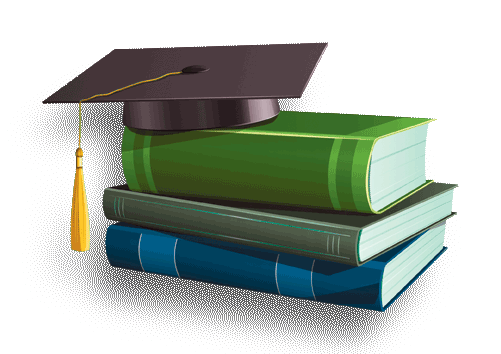| Education matters, for it has the capacity to improve lives and transform communities in the world. In education, teachers matter. The key to a successful school system is this: get the right people to become teachers, and develop them into effective teachers. We prepare our students to become competent, healthy and caring professionals, with intellectual enthusiasm, social commitment and global awareness. These are supported by a broad and multidisciplinary knowledge base which integrates theory and practice. Our curriculum is designed with a view to developing valued attributes of ideal graduates within the following four learning domains: character and moral responsibility; competence and professional excellence; cultivation of wisdom and intellectual engagement; and civic-mindedness and social responsibility. Each of our graduates can be an agent for change and a source of inspiration for the next generation. |
 |
 |
|
Provide a full array of academic programmes, mainly at undergraduate and postgraduate levels, as well as professional development courses, within a well-articulated qualification continuum framework. |
 |
|
Enhance our undergraduate curriculum under the established overarching curriculum framework, to encompass: |
| |
|
• an integrated and broadened learning framework that acknowledges the global vision and ongoing challenges that characterize Hong Kong; |
| |
|
• a learning-oriented approach in curriculum design with integrated learning; |
| |
|
• a credit-based modular structure with different learning pathways to cater for multiple students' needs, career aspirations and lifelong learning; |
| |
|
• a total learning experience embracing an enriched campus life and a full range of co-curricular learning experiences that widen students' horizons both locally and abroad; |
| |
|
• elements of synergy across programmes and disciplines; |
| |
|
• a proactive language policy in support of our undergraduate students' acquiring biliterate (Chinese and English) and trilingual (Cantonese, Putonghua and English) competencies, through a range of measures designed to create and sustain a trilingual campus; |
| |
|
• enhanced regional and international learning experiences through engaging students in both classroom-based and out-of-classroom teaching and learning activities; and |
| |
|
• extended opportunities for field practicum, internship and mentorship in both school and non-school settings. |
 |
|
Diversify our range of undergraduate programme offerings in disciplines complementary to Education, including Humanities, Social Sciences, and Creative Arts and Culture, as well as consolidate our academic strengths within better delineated discipline areas. |
 |
|
Increase the knowledge transfer and application value of our programmes by enriching them with the latest developments in research, and having our research centres working in unison with academic departments and the Graduate School. |
 |
|
Monitor our quality assurance and enhancement systems through designated committees to ensure that we meet the needs of the devolved academic and decision-making structures. |
 |
|
Enhance student-focused learning through the promotion of innovative curriculum design, the application of Information and Communication Technology, new pedagogies and assessment that facilitates learning. |
 |
|
Embrace a quality enhancement culture that creates an environment of self-regulating continuous improvement. |
 |
|
Implement incentive systems that recognize outstanding contributions to the enhancement of teaching and learning as well as to the development of support services that enhance student learning locally and internationally. |
 |
|
Foster students' whole person development and holistic learning experience, and nurture their leadership capacities through formal and informal educational experiences in both local and cross-cultural contexts. |
 |
|
Empower our students to become independent, analytical, critical and creative learners and thinkers through innovative curriculum design and campus activities. |
 |
|
Broaden our students' national and international outlook through diversification of the student population, development of cross-cultural and multi-ethnic understanding, and attachment experience on the Mainland and overseas. |
 |
|
Provide a rich and collaborative learning environment, including the Learning Commons that integrates library, technology and other campus services, which is conducive to social and intellectual engagement, appreciation of arts and culture, commitment to environmental sustainability, and care for the community and humanity. |
 |
|
Cultivate a self-directed learning culture among students through a variety of co-curricular learning activities including credit-bearing arrangements, and service-leadership advocacy. |
 |
|
Enhance the variety of specializations within our Master and Doctor of Education degree programmes to meet local and regional in-service needs. |
 |
|
Develop postgraduate programmes with strategic importance in broad disciplines complementary to Education, including Humanities, Social Sciences, and Creative Arts and Culture to enrich the learning environment with a strong multidisciplinary research culture. |
 |
|
Develop collaborative postgraduate programmes with leading institutions in the region or overseas with strategic importance given to enhancing students' international learning experiences and responding to the rising international demands for senior-level professional education. |
 |
|
Develop future researchers through active research postgraduate degree programmes within our main areas of research expertise, benchmarked against international standards. |
 |
|
Enhance public recognition with regard to the professional commitment and achievements of our graduates. |
 |
|
Strengthen links to our alumni and involve them in our teaching and learning, professional development, student mentoring, and institutional advancement activities. |
 |
|
Support our alumni in their education work and open up campus facilities to them. |
 |
|
Develop students' attitudes and skills towards ongoing professional development, so that future teachers will also be researchers with the capacity to enhance the scholarship of teaching in the community. |
 |
|
Engage in professional training programmes for teachers and academics, as well as for personnel serving in non-governmental organizations and government organizations. |




